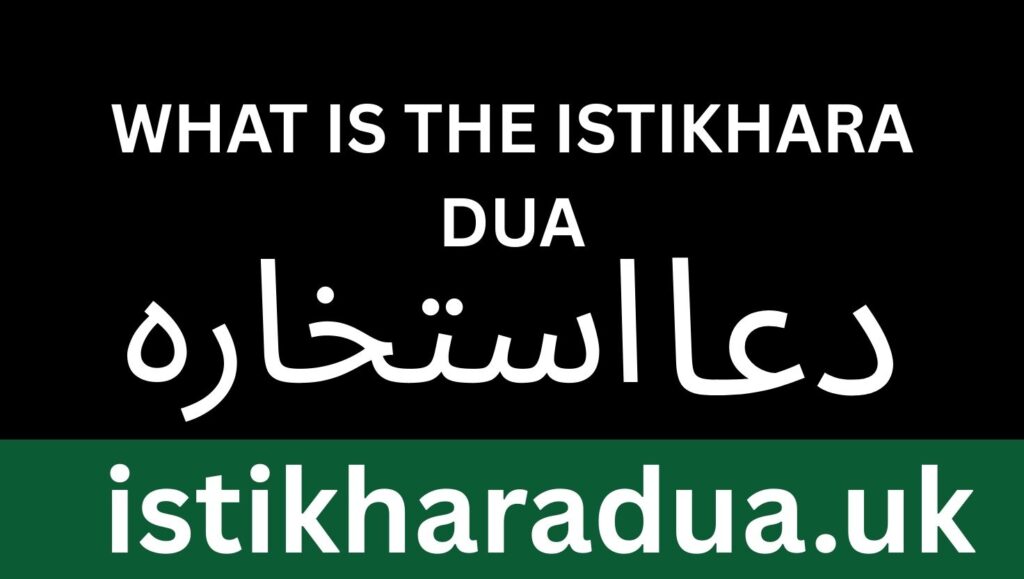
What Is Istikhara Dua?
What is Istikhara Dua? It’s a special Islamic prayer seeking Allah’s guidance for decisions, big or small. Performed in two rak’ahs, it’s followed by a specific dua asking for clarity. This guide explains its meaning, steps, and real-life applications.
Your Guide to Istikhara Prayer
Facing a tough decision? Maybe it’s about a job, marriage, or a big life change. Istikhara Dua is like a spiritual compass, helping Muslims seek divine guidance. This 2000-word guide breaks down the meaning of Istikhara, how to perform it, and why it’s so powerful. Whether you’re a beginner or brushing up, we’ll cover everything with practical tips, real stories, and Islamic wisdom.
Understanding Istikhara: The Prayer for Guidance
Istikhara, derived from the Arabic word “khayr” (goodness), means seeking what’s best from Allah. It’s not fortune-telling or a magic trick—it’s a heartfelt plea for divine direction. The Prophet Muhammad (peace be upon him) taught this prayer to help Muslims navigate life’s uncertainties. As narrated in Sahih al-Bukhari (1166), Jabir ibn Abdullah said, “The Prophet taught us Istikhara for all matters, as he taught us the Qur’an.”
Why do we need it? Life’s choices can feel overwhelming—marriage, career moves, or even daily dilemmas. Istikhara connects you to Allah’s infinite wisdom, easing anxiety and fostering trust. It’s a Sunnah practice, meaning it’s highly recommended but not obligatory.
How to Perform Istikhara Dua
Performing Istikhara is simple but requires sincerity. Here’s a step-by-step guide:
Perform Wudu: Ensure you’re in a state of ritual purity.
Pray Two Rak’ahs: Offer two non-obligatory units of prayer, ideally after Isha or during the night.
Recite the Istikhara Dua: After the prayer, recite the specific dua taught by the Prophet (peace be upon him).
Focus on Your Decision: Mentally specify the matter you’re seeking guidance on.
Trust Allah: Leave the outcome to Allah, knowing He’ll guide you to what’s best.
The dua, as found in Sahih al-Bukhari (6382), is:
“Allahumma inni astakhiruka bi‘ilmika…” (O Allah, I seek Your guidance by Your knowledge…)
Don’t know Arabic? You can read a transliteration or translation, but sincerity matters most. Scholars like Ibn Hajar emphasize that Istikhara is about aligning your heart with Allah’s plan.
The Meaning of Istikhara: More Than a Prayer
The meaning of Istikhara goes beyond the act. It’s about surrendering your will to Allah’s. You’re saying, “I trust You to guide me.” This humility is key. As Allah says in the Qur’an (2:186), “When My servants ask you about Me, I am near, responding to the caller when he calls.”
Istikhara isn’t about seeing a dream (though dreams can be a sign). It’s about clarity in your heart, circumstances aligning, or doors opening/closing. For example, you might feel peace about a job offer or notice obstacles fading away.
Real-Life Example: A Marriage Decision
Aisha, a 27-year-old teacher, faced a dilemma about a marriage proposal. She prayed Istikhara for a week. Initially unsure, she noticed her doubts fading and felt calm about saying yes. Her story shows how Istikhara brings emotional clarity, even without a dream.
Common Myths About Istikhara
Let’s bust some myths to clarify the Istikhara explanation:
Myth 1: You Must See a Dream
Not true! Dreams are one possible sign, but guidance often comes through feelings or events. Scholars like Imam Nawawi stress that Istikhara works through subtle signs, not always vivid dreams.Myth 2: Istikhara Guarantees Instant Answers
Patience is key. Allah’s timing varies. Some feel clarity in days; others wait longer.Myth 3: Istikhara Is Only for Big Decisions
Wrong! The Prophet (peace be upon him) encouraged Istikhara for all matters, even small ones (Sahih Muslim, 2668).
Case Study: Omar’s Career Crossroads
Omar, a 32-year-old engineer, was torn between two job offers—one high-paying but stressful, the other modest but fulfilling. He performed Istikhara nightly for a week, seeking Allah’s guidance. During this time, he reflected deeply, consulted mentors, and researched both roles. By the fifth day, the high-paying job’s company delayed their offer, while the other sent a warm follow-up. Omar felt peace choosing the fulfilling role. Months later, he thrived, confirming his choice. This case shows how Istikhara, paired with effort, aligns decisions with divine wisdom (Tafsir Ibn Kathir, Surah Ash-Sharh).
Beginner Tips for Performing Istikhara
New to Istikhara? Here’s how to start:
Learn the Dua: Memorize or keep a transliteration handy. Apps like Muslim Pro offer audio guides.
Be Specific: Clearly define your decision before praying.
Stay Consistent: Pray Istikhara for 3–7 days if needed, as advised by scholars like Shaykh Ibn Uthaymeen.
Act After Prayer: Istikhara isn’t passive. Take steps toward your decision while trusting Allah.
Seek Advice: Combine Istikhara with consulting trusted people, as the Prophet encouraged (Sunan Abu Dawud, 1530).
Real-Life Example: Choosing a University
Hassan, a high school graduate, was unsure about studying abroad or staying local. After praying Istikhara, he felt drawn to a local university with a strong Islamic studies program. A scholarship offer sealed his decision. His story highlights how Istikhara can guide academic choices.
Why Istikhara Matters in 2025
In today’s fast-paced world, decisions feel heavier. Social media, career pressures, and endless options can cloud judgment. Istikhara offers a timeless solution. As Allah says in Qur’an (3:159), “Consult them in the matter, and when you decide, rely upon Allah.” This verse underscores combining prayer with action.
Technology can help. Apps like Al-Hisnul Hasin provide dua texts, while online Islamic courses explain Istikhara’s nuances. Yet, the core remains spiritual—trusting Allah over algorithms.
Another Example: Relocating for Work
Fatima, a single mother, prayed Istikhara when offered a job in another city. She worried about uprooting her kids. After praying, she found affordable housing near the new job and felt peace. Her move was smooth, proving Istikhara’s role in easing transitions.
Addressing Pain Points: Anxiety and Doubt
Feeling anxious about a decision? You’re not alone. Istikhara soothes uncertainty by reminding you Allah is in control. Scholars like Mufti Menk advise, “Pray Istikhara, then let go of worry.” Pair it with dua for peace (Qur’an 13:28): “Those who believe, their hearts find rest in Allah’s remembrance.”
Doubtful about signs? Don’t overthink. Guidance might come as a gut feeling, a conversation, or a new opportunity. Trust the process.
FAQs
What is Istikhara Dua in Islam?
It’s a two-rak’ah prayer followed by a dua seeking Allah’s guidance for decisions, taught by the Prophet (peace be upon him).
When should I perform Istikhara?
Anytime you face a decision, big or small. It’s best after Isha or during the night for focus.
Do I need to see a dream after Istikhara?
No, dreams are optional. Guidance often comes through feelings, events, or clarity (Sahih al-Bukhari, 6382).
How many times should I pray Istikhara?
Once is enough, but scholars recommend 3–7 days for clarity if needed (Shaykh Ibn Baz).
Can Istikhara be for small decisions?
Yes! The Prophet encouraged it for all matters (Sahih Muslim, 2668).
What if I don’t feel any guidance?
Be patient, keep praying, and take practical steps. Allah’s answer comes in His time.
Can non-Arabic speakers perform Istikhara?
Absolutely. Use transliteration or translation, but sincerity is what counts.
Internal Links
Learn more about daily Islamic prayers – Discover the five daily prayers.
Explore duas for daily life – Find other supplications for guidance.
Understand Sunnah practices – Deep dive into prophetic traditions.
Call to Action
Feeling stuck? Try Istikhara tonight and seek Allah’s guidance for your next big decision!
Author Bio
Maira Kamran is a passionate content writer dedicated to creating informative and engaging content that resonates with readers. With a focus on Islamic practices and lifestyle, Maira aims to provide valuable insights to help readers navigate their spiritual and everyday lives. Visit her whatsapp, for more helpful resources and guides.
